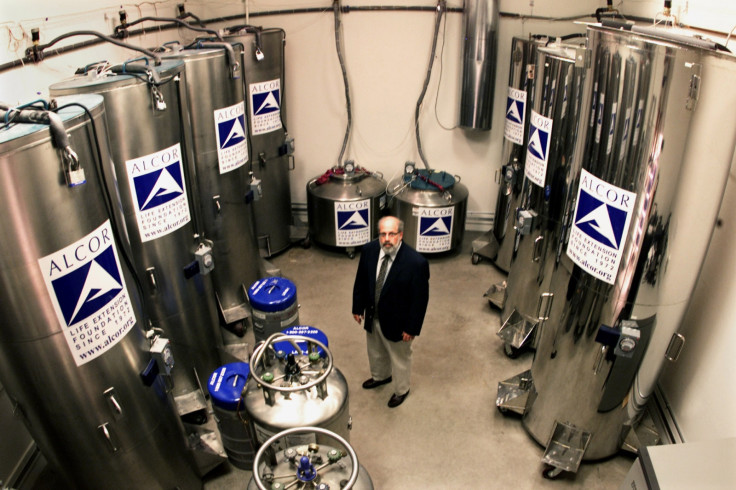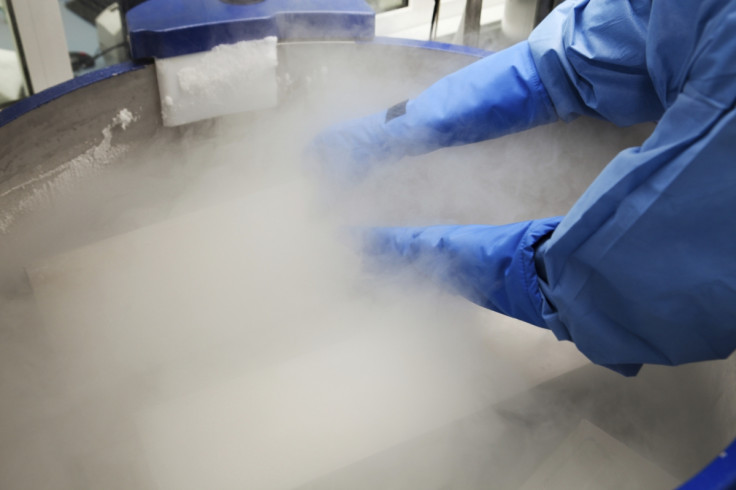Cryonic freezing: Meet the people who want to be brought back to life in the future
Members of Cryonics UK explain why they want to be frozen in the hope of being revived.
A terminally ill teenager from London won the right to be cryonically frozen so she might be revived in the future when a cure for her cancer has been found. The girl, who was 14 years old when she died, is the first child in the UK to have her body preserved in this way.
The case and High Court ruling, which have only just been made public, came after her father objected to her wishes. In a letter to the court before her death in October, the girl, referred to only as 'JR', said: "I don't want to die but I know I am going to ... I want to live longer and I think that in the future they may find a cure for my cancer and wake me up. I want to have this chance. I think being cryopreserved gives me a chance to be cured and woken up, even in hundreds of years' time. I don't want to be buried underground."
Her case has reignited interest in cryopreservation. At present, the technology to bring people back to life from a frozen state does not exist. Scientists across the world are currently working on methods to successfully reanimate the body without cells being damaged.
For example, in February this year researchers announced they had returned a cryogenically frozen rabbit brain in near-perfect condition.
JR's motivation for being cryogenically frozen is clear. But what about people who are healthy? What makes them want to be brought back in a future they will not know?
Tim Gibson, from Cryonics UK, told IBTimes UK that he is fully aware the technology to bring people back may never exist – but if you don't try, you'll never know. As with technology, certain people get on board at the beginning before everyone else. Cryogenics is no different: "You've got to be a pre-early adopter because you're buying something that doesn't work yet. It takes a special kind of mentality, really.

"The basic mentally of it is if you just keep going, you'll fix it. There's still a big part of the population that has no vision. They can't see potential in anything."
Further to this, Gibson said there is a certain element of laziness and the lack of survival instinct. "It's the same thing that stops people going to the gym or eating the right things. They think 'I know it's right, but I can't be bothered'. I think cryonics falls into the same category of not going to the gym."
Gibson is one of a handful of volunteers who drive cryogenic ambulances – picking up members shortly after death and preserving them. Bodies are stored in facilities in the US. Since they started around 15 years ago, Cryonics UK has had 10 cases. It currently has around 50 members.

Gibson said he finds the prospect of being frozen neither exciting or daunting: "I just think, I'll get there. I'm a real cynic. I'm diving into this, but at the same time my brain is thinking 'It isn't going to work, you're wasting your time'. But at the same time, there's part of me that thinks it's not zero-possibility. If you're still in existence in some fashion, the door is always open. So it's no good saying it will never happen, because as far as I can see, if I'm still here I've still got the potential to succeed.
"Basically what I'm saying is you can't put a time limit on it, you can't say we're going to fail. Because the only point at which we fail is if the organisation collapses and we all get buried."
Victoria Stevens, another member of Cryonics UK, is also not convinced bringing people back to life will ever be a reality. "Anybody who thinks it will definitely work is a little foolish," she said. "We don't know how to revive somebody as of yet; we can't rejuvenate somebody's cells. There are problems to be overcome. Everybody knows you're taking a chance and there's no certainty. But it's a better option to being buried or cremated."

For Stevens, she says she struggles when asked to explain why she wants to be frozen and revived. "I think it's a strange question when people say 'Why would you want to live longer?' Because to me, it's obvious. Why would you not want to? I enjoy living. I love my family and I wouldn't want to say goodbye to them forever. I just find living a joy. So why would I not want to continue? I want to be healthy. So if it's possible to increase health-span, then that's a good thing.
"I think many people tend to be wary of new ideas. I think there's a lot of that in it. But what's normal and what's accepted changes over time. People may also just not be willing to face what's going to happen to them at the end of their lives. I mean, it's not a nice thing to go through the end process, so why would anybody choose it? Are they facing up to what's really going to happen to them or are they in denial of the suffering and pain they may have to go through?"
Both Gibson and Stevens have noticed an increase in interest for cryogenic preservation. "As science moves on, people perhaps start to see it as a little more possible than they used to," Stevens said.
Gibson said the popularity is only going to increase as people see it as an ever-more realistic proposition: "People have seen what happens when you modify DNA, et cetera. People can see what's happening and it's going in the right direction."
However, he said there are still barriers with how people perceive it, saying the main problem is they still associate it with death: "If you start talking about it as cheating death, then why don't people say the same about cancer research? Or heart transplants? It's all the same. I don't get it, personally."
© Copyright IBTimes 2025. All rights reserved.






















